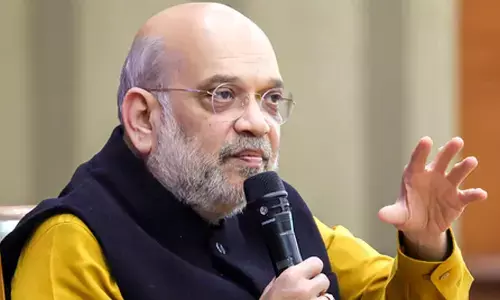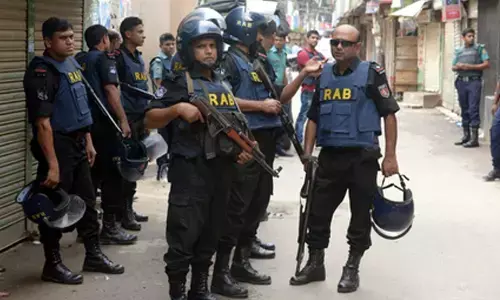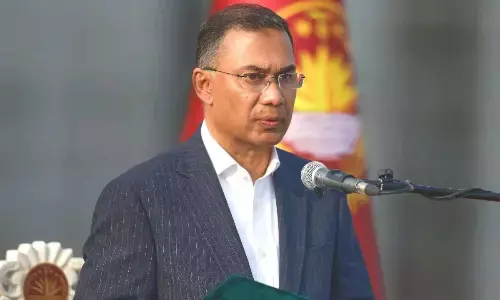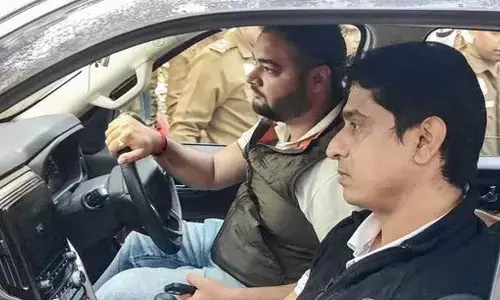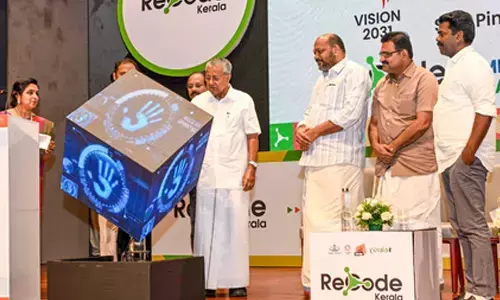Dignity still elusive
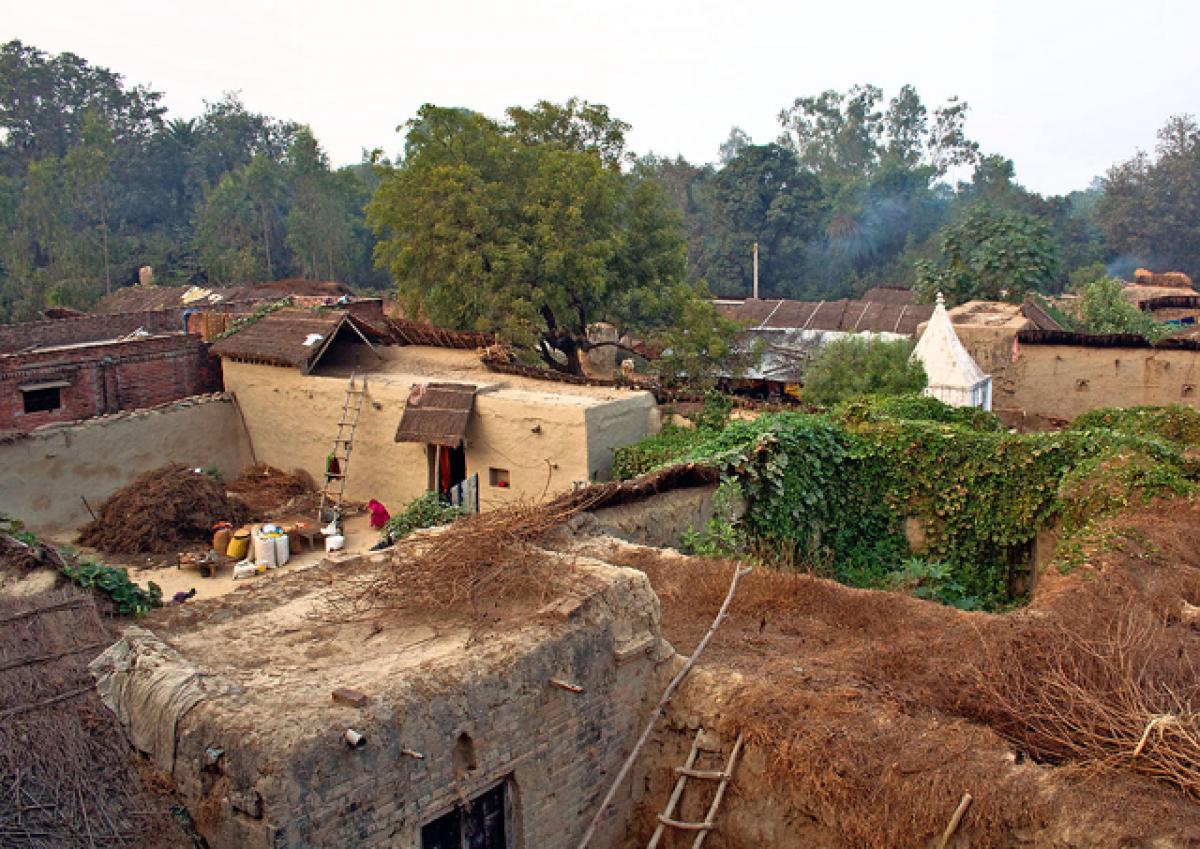
Dignity still elusive. The French traveller Jean - Baptiste Tavernier in his ‘Travels in India’, written in the 17th century, gives the following account of Indian life: “Even in the smallest villages, rice, flour, butter, milk, beans and other vegetables, sugar and sweetmeats can be procured in abundance”.
68 Years of Freedom
The French traveller Jean - Baptiste Tavernier in his ‘Travels in India’, written in the 17th century, gives the following account of Indian life: “Even in the smallest villages, rice, flour, butter, milk, beans and other vegetables, sugar and sweetmeats can be procured in abundance”. Yet, during the British rule, as per Government records of the time, 70 to 80 per cent of Indians were living at subsistence levels, two-thirds were undernourished and in Bengal nearly four-fifths were undernourished
The nation celebrated yet another ‘Independence Day.’ Recall on August 15, 1947, Prime Minister Nehru proclaimed a tryst with destiny, “a moment which comes but rarely in History when we step from the old into the new, when an age ends and the soul of a nation, long suppressed, finds utterance”. After 68 long years, we could do with some soul searching rather than rhetoric.
.jpg)
The colonial rule destroyed the Indian economy and greatly impoverished the people of India. An estimate by the Cambridge historian Angus Wilson reveals that in 1700, India’s share of the world income was 22.6 per cent comparable to the entire income of Europe which was then at 23.3 per cent. By 1952, however, India’s share fell to 2.3 per cent of the world income. By all accounts, India was a prosperous nation at the onset of Western colonialism.
The French traveller Jean - Baptiste Tavernier in his ‘Travels in India’, written in the 17th century, gives the following account of Indian life: “Even in the smallest villages, rice, flour, butter, milk, beans and other vegetables, sugar and sweetmeats can be procured in abundance”. Yet, during the British rule, as per Government records of the time, 70 to 80 per cent of Indians were living at subsistence levels, two-thirds were undernourished and in Bengal nearly four-fifths were undernourished.
At all times in its history, even the most distressing, India was revered by the great minds across the continents. The renowned American historian, Will Durant summed it up: “India was the motherland of our race, and Sanskrit the mother of Europe’s languages: she was the mother of our philosophy; mother, through the Arabs, of much of our mathematics; mother, through the Buddha, of the ideals embodied in Christianity; mother, through the village community, of self-government and democracy. Mother India is in many ways the mother of us all”.
The freedom struggle was not just for political freedom. It was not merely to dislodge foreign rulers and install our own. It was also for social and economic change and for a life of peace and dignity to all citizens. Whilst India witnesses rapid economic growth, there are still vast numbers of people in the country who face grave problems of illiteracy, disease and poverty. What is required is greater attention to inclusive development that benefits significantly all sections of the population.
A major managerial and policy challenge that we face today results from the speed of urbanization. It is estimated that by 2030, most cities and quasi urban regions of India will witness a substantial increase in population. Unless a massive expansion of infrastructure begins right now, these regions will be affected by a sharp decline in water supply with a large section of the population having no access to potable water at all. Towns could have 70 to 80 per cent of sewage untreated.
Whilst car ownership will increase exponentially, shortcomings in the transportation infrastructure might create an unmanageable urban gridlock. Affordable housing for the low income group is a most important concern. At present, a person earning an average salary cannot own a dwelling in most parts of the country and the price of land is bound to further increase over the years. A strategy ought to be devised to provide affordable housing to the average citizen. Planning mandates in the United Kingdom have generated 20 to 25 per cent of all affordable units built over the last decade.
South Africa allots free land for houses to its poorest income group. Singapore provides public housing for more than 80 per cent of its population through a dedicated Housing Development Board, interest rate subsidies and other financial devices to make housing affordable to all. We, the people of India, must rise above our religious, ethnic and linguistic diversity and together deal with the multifarious tasks that confront us today. We must as a pressure group act to insist on the Government to carry out its responsibilities on the one hand, and on the other do what is expected of us as citizens.
The framework for responsible citizenship and national regeneration has been clearly laid down in the Indian Constitution in three parts. Part III of the Constitution deals with the Fundamental Rights, Part IV with the Directive Principles of State Policy and part IVA with the Fundamental Duties. These need to be reiterated. Fundamental Rights are basic human rights which the State recognizes and it provides for their enforcement. We are all equally human, the world is one family and all human rights are for all.
The nature and extent of State responsibility for the protection of human rights in India was indicated by the National Human Rights Commission in the case of the Gujarat riots of 2002. It stated: “It is the primary and inescapable responsibility of the State to protect the right to life, liberty, equality and dignity of all those who constitute it. It is also the responsibility of the State to ensure that such rights are not violated either through overt acts or through abetment or negligence”.
The Directives Principles of State Policy are guidelines to be kept in mind by the Government whilst framing laws and policies. These guidelines include the promotion of the Panchayati Raj system, free and compulsory education to all children below the age of 14 years and provision of adequate means of livelihood to all. While efforts are underway by successive governments in this direction, much more needs to be done.
The Fundamental Duties are moral obligations of all citizens and are specifically intended to promote responsible citizenship and national unity and harmony. We often harp on our rights but neglect and may even be unaware of our duties. Mahatma Gandhi remarked: “I learnt from my illiterate but wise mother that all rights to be deserved and preserved come from duty well done.” The Constitution lists ten Fundamental Duties. Each has a distinct role and importance in our polity.
One of the fundamental duties is “to provide harmony and the spirit of common brotherhood among all the people of India transcending religious, linguistic and regional or sectional diversities”. What is needed is a citizenry conscious of their rights and of their duties. The Union and State Governments should work together with voluntary organizations to promote awareness of our constitutional rights as well as of our responsibilities and to sensitize the citizens to the values enshrined in the Constitution.
By Eduardo Faleiro


